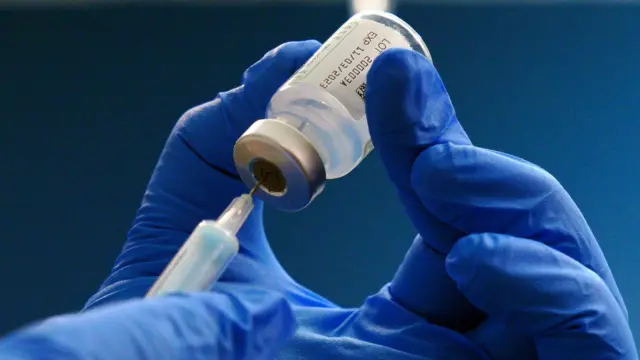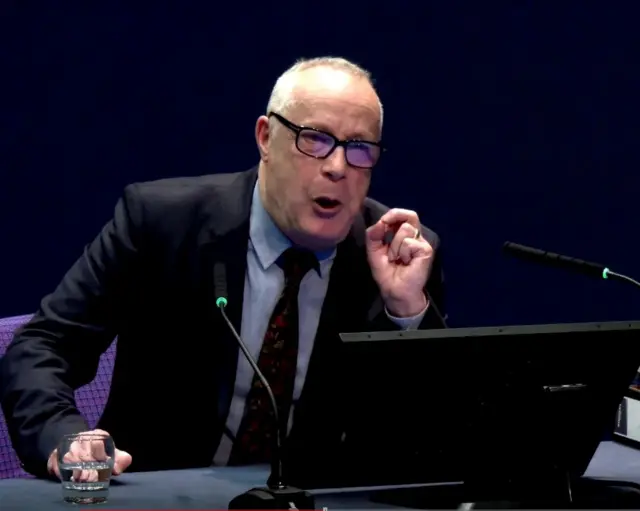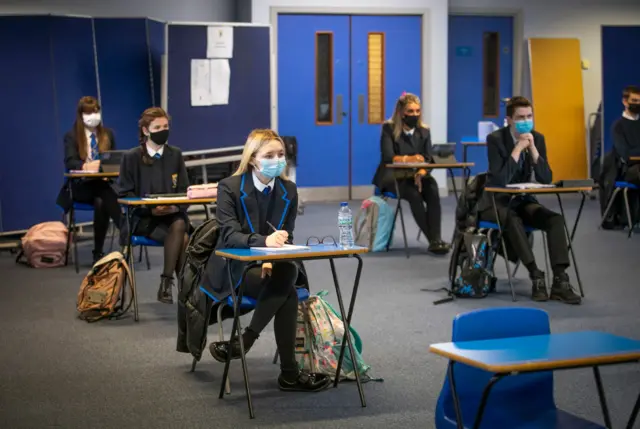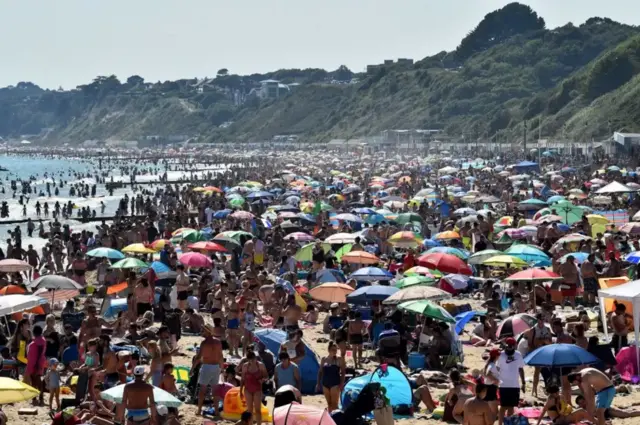The key points so farpublished at 13:24 GMT 24 January 2024
The UK Covid inquiry took evidence from Professor Mark Woolhouse and Professor Stephen Reicher on the seventh day of its hearings in Scotland. Here are some of the key points:
- Prof Woolhouse says he warned Scotland's chief medical officer, Dr Catherine Calderwood, about coronavirus in January 2020 but felt the risks were not being taken seriously.
- The professor of infectious disease epidemiology at University of Edinburgh agrees with the suggestion that officials "froze" in the face of the evidence about the virus.
- Prof Woolhouse also says Dr Catherine Calderwood was "not listening" to his warnings.
- He says the stay at home order introduced during the pandemic was "never necessary".
- The academic also argues that schools stayed shut far longer than necessary and says he was “baffled” by their closure in January 2021.
- Stephen Reicher, professor of psychology at the University of St Andrews, says fear was used to “frighten people into adherence" during the pandemic. He says you can be more effective by showing respect to the public.





